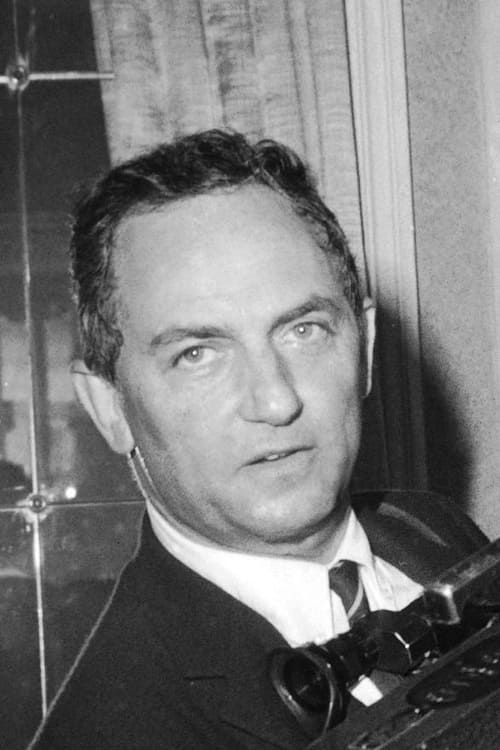François Reichenbach
Birth : 1921-07-03, Neuilly-sur-Seine, Seine [now Hauts-de-Seine], France
Death : 1993-02-02
History
François Reichenbach was a French film director, cinematographer producer and screenwriter. He directed 40 films between 1954 and 1993.

Self (archive footage)
This documentary recounts the life of the late composer Michel Legrand, known for his works on Les Parapluies de Cherbourg or Les Demoiselles De Rochefort with the famous director Jacques Demy.

Director

Director
Director François Reichenbach assembled 90 minutes of footage on Japanese rituals and customs, martial arts, evidence of Western commercialism, and the nearly blank faces of urban dwellers who seem to wrap themselves in anonymity as a protection against the crowded masses. Without the benefit of interviews or analyses of what is passing before one's eyes on the screen, the parade of Japanese scenes seems to take place at some distance -- making the viewer a definite outsider with no friendly interpreter to ground his or her perspective.
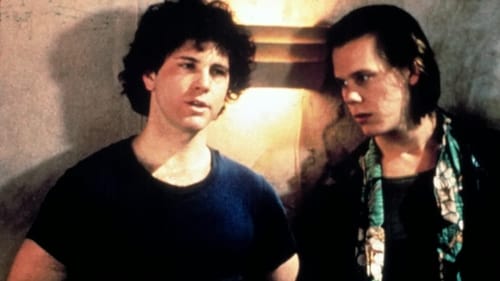
Director of Photography
A young hustler tries to get drug money by selling a boy to a middle-aged man; his plans are disrupted when the kid dies.

Director
A film-crew follow the investigation of a cop killing.

Director
Foundling boy runs away from orphanage to follow the circus and undergo indoctrination into Clown Cult.

Director
The director films common people in sexual related situations, in a variety of true, gripping, funny, dramatic, disturbing, imaginative ways - in the country than facing a big moral change in their view of adult, public and sexual life.

Writer
Carrying his son on his back, a man travels from place to place looking for a doctor to treat the sick boy. As they journey, the indio father tells the boy stories to keep him distracted. These stories reveal the life of native peoples in Mexico, both in the countryside and in cities, and they shed light on characteristic beliefs and rituals.

Director
Carrying his son on his back, a man travels from place to place looking for a doctor to treat the sick boy. As they journey, the indio father tells the boy stories to keep him distracted. These stories reveal the life of native peoples in Mexico, both in the countryside and in cities, and they shed light on characteristic beliefs and rituals.

Director
Study of the passengers of a steamship during a Mediterranean cruise. (uniFrance)
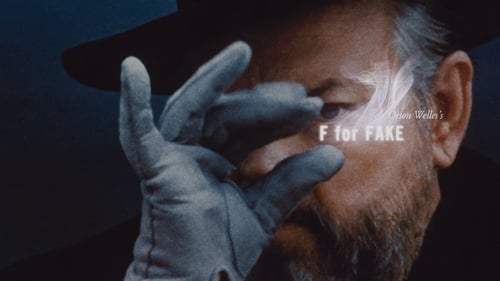
Co-Director
Documents the lives of infamous fakers Elmyr de Hory and Clifford Irving. De Hory, who later committed suicide to avoid more prison time, made his name by selling forged works of art by painters like Picasso and Matisse. Irving was infamous for writing a fake autobiography of Howard Hughes. Welles moves between documentary and fiction as he examines the fundamental elements of fraud and the people who commit fraud at the expense of others.

Executive Producer
Documents the lives of infamous fakers Elmyr de Hory and Clifford Irving. De Hory, who later committed suicide to avoid more prison time, made his name by selling forged works of art by painters like Picasso and Matisse. Irving was infamous for writing a fake autobiography of Howard Hughes. Welles moves between documentary and fiction as he examines the fundamental elements of fraud and the people who commit fraud at the expense of others.

Director of Photography
Documents the lives of infamous fakers Elmyr de Hory and Clifford Irving. De Hory, who later committed suicide to avoid more prison time, made his name by selling forged works of art by painters like Picasso and Matisse. Irving was infamous for writing a fake autobiography of Howard Hughes. Welles moves between documentary and fiction as he examines the fundamental elements of fraud and the people who commit fraud at the expense of others.
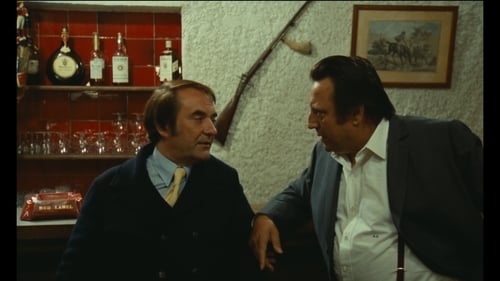
Director
The guardian of a nursing home lends a compassionate ear to the complaints of two new pensioners who love each other and have only one dream: to see the sea. To help them realize their dream, the brave man steals the car of the director. She quickly discovers the crime and drags her pale husband to the pursuit of the trio, aboard a tanker truck...

Scenario Writer
The guardian of a nursing home lends a compassionate ear to the complaints of two new pensioners who love each other and have only one dream: to see the sea. To help them realize their dream, the brave man steals the car of the director. She quickly discovers the crime and drags her pale husband to the pursuit of the trio, aboard a tanker truck...
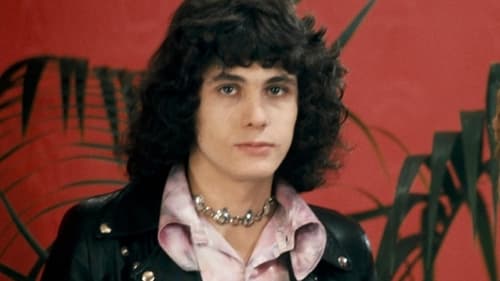
Producer
François Naulet turns his bedroom into an island of drugs, loneliness and despair.

Director
An intimate cinéma vérité style documentary following french mega star Johnny Hallyday's summer tour.

Self
An intimate cinéma vérité style documentary following french mega star Johnny Hallyday's summer tour.

Director
Documentary of a 154-person bus and truck tour that set out to spread the gospel of flower power to the hinterlands of the U.S.

Writer

Director

Director
Documentary about Polish-American pianist, Arthur Rubinstein.

Director
Inspired by Giovanni Boccaccio's 14th-century collection of novellas known as The Decameron, this innovative film combines short works from seven directors who set out to interpret Boccaccio's masterwork for the modern age. The result is an assortment of titillating tales ranging from the erotic to the tragic.

Director of Photography
"Mexico begins where the roads end ”. Mexican writer Carlos Fuentes tells us about the history of Mexico: its invasions, its revolutions, its sacred lands, its forgotten legends, its religious rituals and this frightening misery. François Reichenbach and his camera sink into the dust, on this sacred land, where "the land never ends."

Director
"Mexico begins where the roads end ”. Mexican writer Carlos Fuentes tells us about the history of Mexico: its invasions, its revolutions, its sacred lands, its forgotten legends, its religious rituals and this frightening misery. François Reichenbach and his camera sink into the dust, on this sacred land, where "the land never ends."

Director
This colorful documentary chronicles the events of the 1968 Winter Olympics in France. The events made international celebrities of skater Peggy Fleming and skier Jean-Claude Killy for their gold-medal performances. The camera accurately catches the speed of bobsleds and downhill racers and ski jumpers as they race for the gold. President Charles DeGaulle is shown observing the action over 13 days, which saw France earn the best performance to date in the winter games.

Director

Director of Photography
Excerpts and fragments from different interviews with Orson Welles making a statement to journalists in fluent French about his career and his conception of life.

Writer
Excerpts and fragments from different interviews with Orson Welles making a statement to journalists in fluent French about his career and his conception of life.

Director
Excerpts and fragments from different interviews with Orson Welles making a statement to journalists in fluent French about his career and his conception of life.
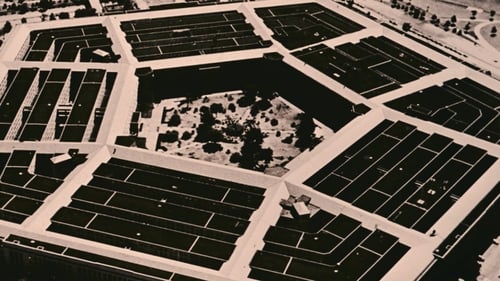
Director
On October 21, 1967, over 100,000 protestors gathered in Washington, D.C., for the Mobilization to End the War in Vietnam. It was the largest protest gathering yet, and it brought together a wide cross-section of liberals, radicals, hippies, and Yippies. Che Guevara had been killed in Bolivia only two weeks previously, and, for many, it was the transition from simply marching against the war, to taking direct action to try to stop the 'American war machine.' Norman Mailer wrote about the events in Armies of the Night. French filmmaker Chris Marker, leading a team of filmmakers, was also there.

Director of Photography
This spectacular opera film was taped in 1967 and is based on the 1966 Salzburg Festival production directed by Herbert von Karajan himself, who also conducts the fabulous Vienna Philharmonic Orchestra. The production features the three greatest exponents of their respective roles at the time: Grace Bumbry’s magnificently seductive-toned Carmen, Mirella Freni’s ineffably lovely, touching Micaëla and Jon Vickers’s thrillingly manic-depressive Don José. On its release the film was hailed by Die Presse, (Vienna) as a “unique artistic event”, while Le Monde felt that Karajan’s production brought “a whole new dimension” to the opera, “combined with a magisterial interpretation”. A classical and utterly dramatic approach to probably the world's most beloved opera – Karajan’s Carmen is as much a delicacy for opera fans as it is a perfect starter for newcomers.

Director
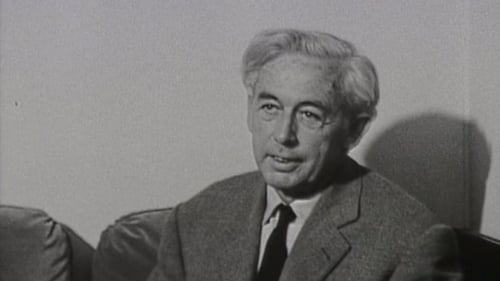
Self
A documentary, originally produced in 1966 for the French TV series "Pour le plaisir," about Robert Bresson's film "Au Hasard Balthazar," featuring interviews and discussions with Bresson, Jean-Luc Godard, Louis Malle, Marguerite Duras and others.

Director
The ancestor of the carnival is the Feast of Fools. During the Middle Ages between Christmas and Epiphany, everything was turned topsy-turvy. The poor could mock the rich, the humble could deride the powerful. A “fool’s pope” was elected and one could disguised himself as a bull, a cow, a deer or other pagan divinities. In New Orleans, the carnival has preserved this sense of liberty. Suddenly, everything is permitted, even the most absurd extravagance.

Director
Documentary about a small village near Le Mans, commented by the village school-teacher.

Director of Photography
Seeing an opportunity to make a financial recovery for the family, a nobleman attempts to wed his son to his wealthy friend's daughter. His plan is to send the boy for a cruise on the SS France with the prospective female. Upon arriving to meet the lovely girl, the young man switches places with his valet. Unbeknownst to him, however, is the fact that the girl has pulled a similar deception. Though Jean-Marc Ripert is responsible for much of the cinematography in this New Wave comedy, it is Francois Reichenbach who handled the camera for many of the ocean-liner scenes.

Director
Seeing an opportunity to make a financial recovery for the family, a nobleman attempts to wed his son to his wealthy friend's daughter. His plan is to send the boy for a cruise on the SS France with the prospective female. Upon arriving to meet the lovely girl, the young man switches places with his valet. Unbeknownst to him, however, is the fact that the girl has pulled a similar deception. Though Jean-Marc Ripert is responsible for much of the cinematography in this New Wave comedy, it is Francois Reichenbach who handled the camera for many of the ocean-liner scenes.

Director

Director

Director
This short film is a metaphore for the destruction of the indian culture by the 'white man'.

Director

Director
The rock-wild youth of the 1960s during the apparitions of their idols.

Director
A photoshoot on the roofs and in the streets of Paris, under the astonished eyes of the inhabitants.

Director
Documentary-style drama about a young African boxer who comes to Paris to try for a boxing career. This film was awarded the Prix Louis-Delluc in 1961and the Golden Leopard at Locarno in 1962.

Writer
This documentary is a general, unquestioning travelog of the United States through the eyes of French director and co-cameraman Francois Reichenbach, a director often fascinated with life in the home of the French-made Statue of Liberty. From the attractions of the West Coast including Disneyland to the skyscrapers of New York, Reichenbach is curious about everything. A prison rodeo (later to come under closer and more critical scrutiny in the '90s), culturally and ethnically mixed neighborhoods, religions outside the mainstream, ghost towns, and the unique world of the American teen are all given a peek. These views of the U.S. are informative though absent of critical analysis.

Director
This documentary is a general, unquestioning travelog of the United States through the eyes of French director and co-cameraman Francois Reichenbach, a director often fascinated with life in the home of the French-made Statue of Liberty. From the attractions of the West Coast including Disneyland to the skyscrapers of New York, Reichenbach is curious about everything. A prison rodeo (later to come under closer and more critical scrutiny in the '90s), culturally and ethnically mixed neighborhoods, religions outside the mainstream, ghost towns, and the unique world of the American teen are all given a peek. These views of the U.S. are informative though absent of critical analysis.

Director
Reichenbach follows the first months training of US Army marines.

Director

Director
A report on this extraordinary boom town that owes its fortune to oil.

Director
Travel journal under the form of a portrait series, silent intimate images filmed by François Reichenbach in 1954.
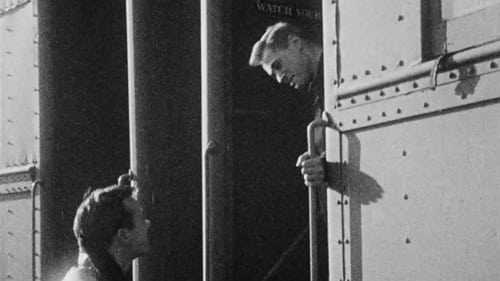
Director
Two men in love, hugging and then apart, one in the city and the other in the country.
